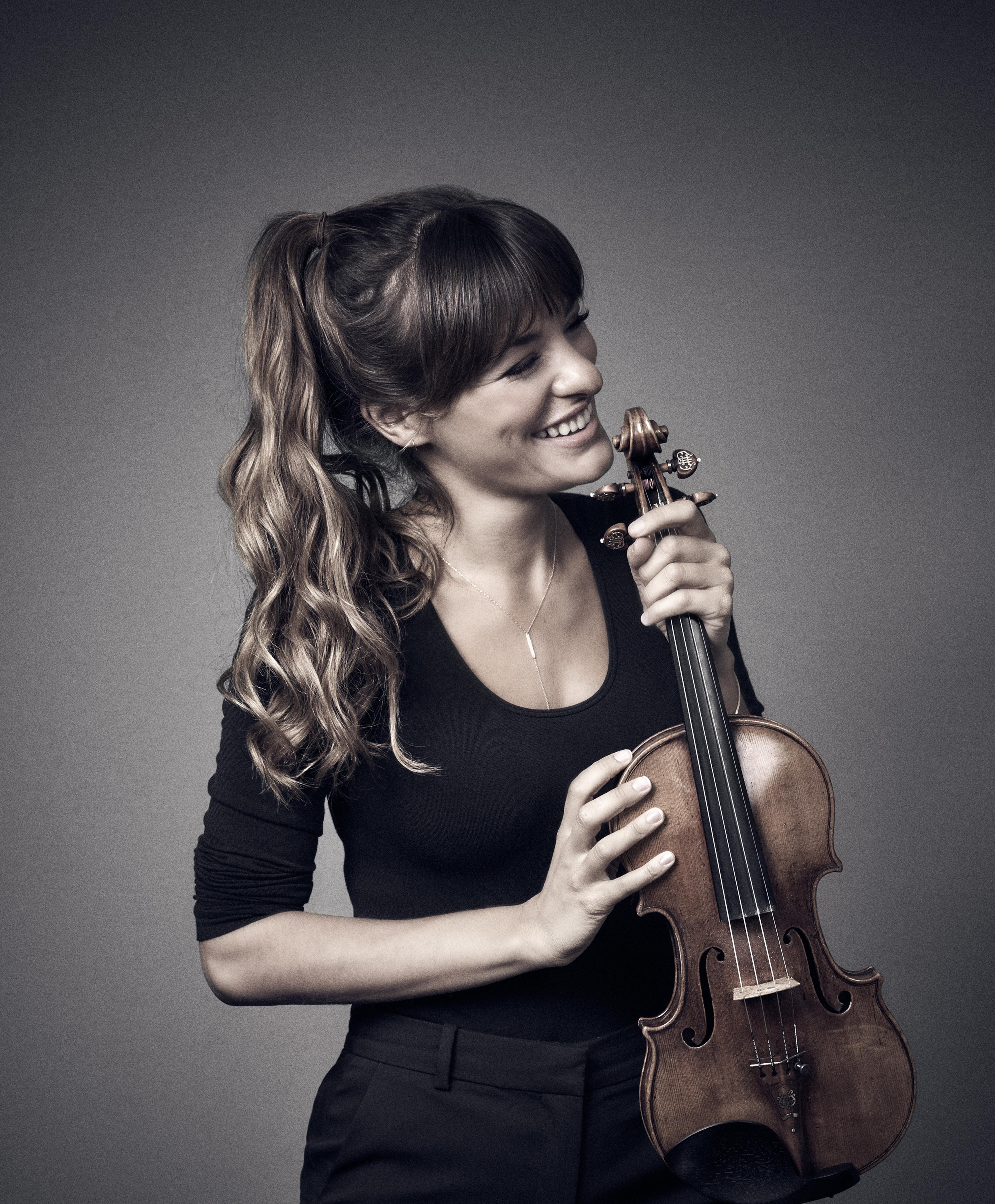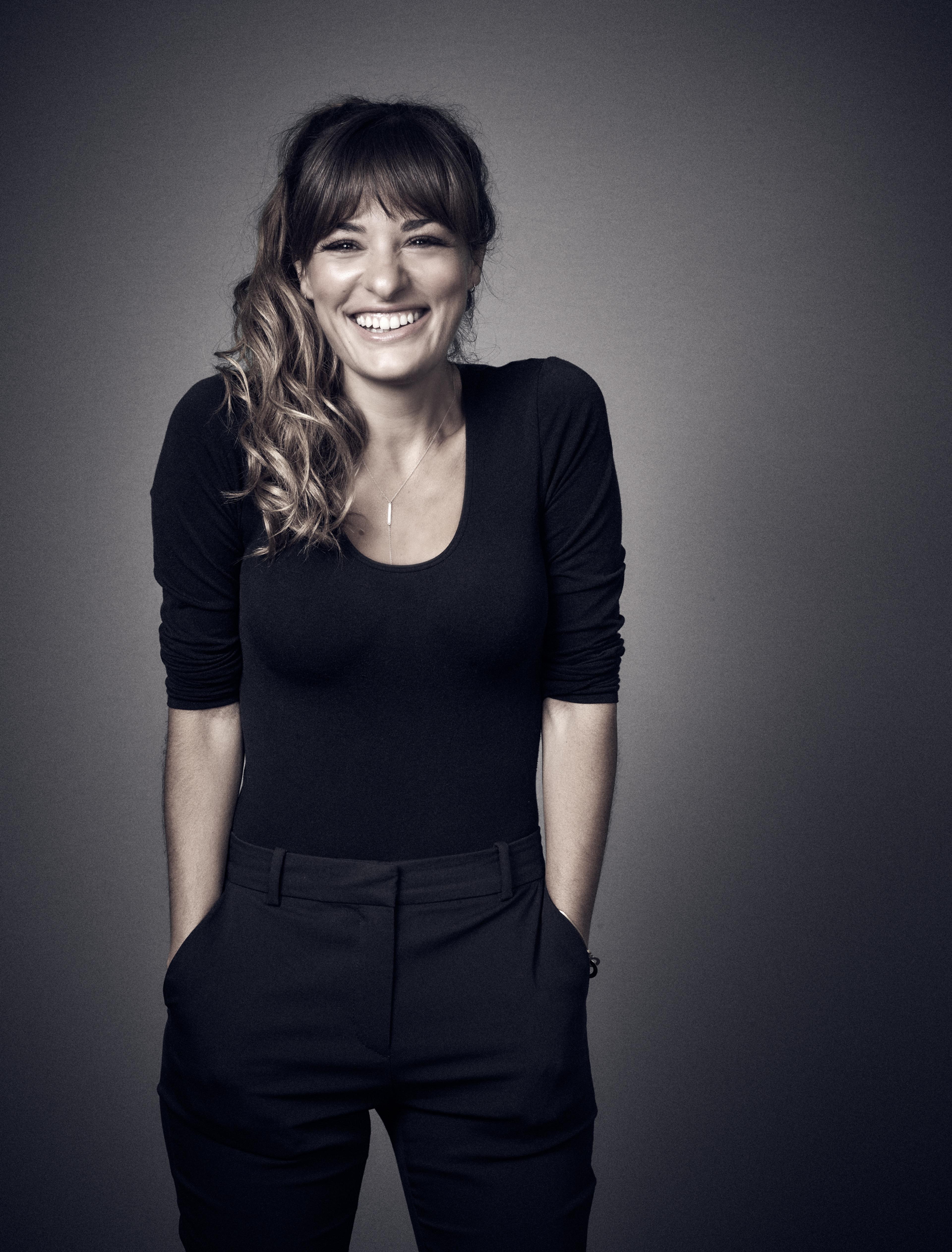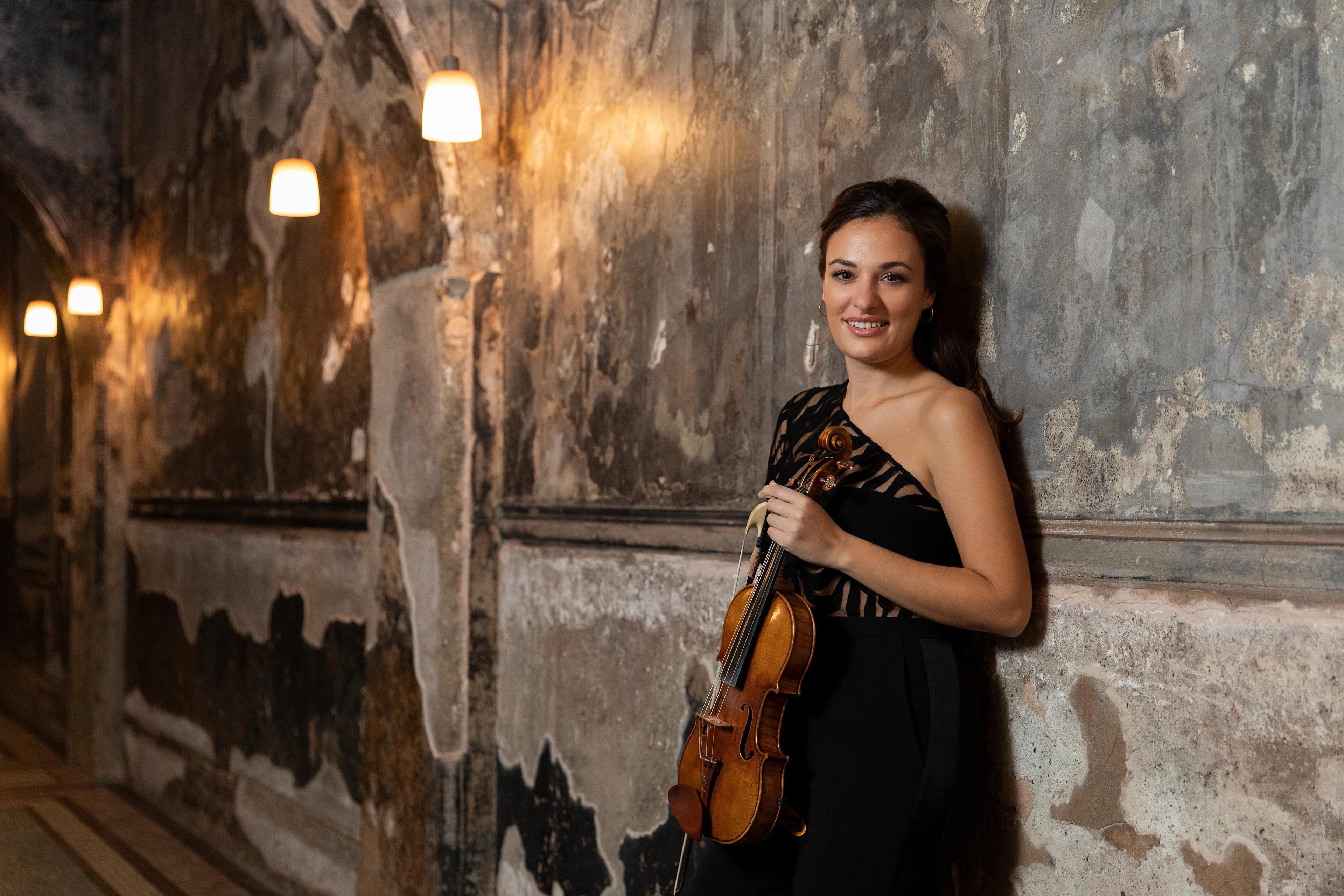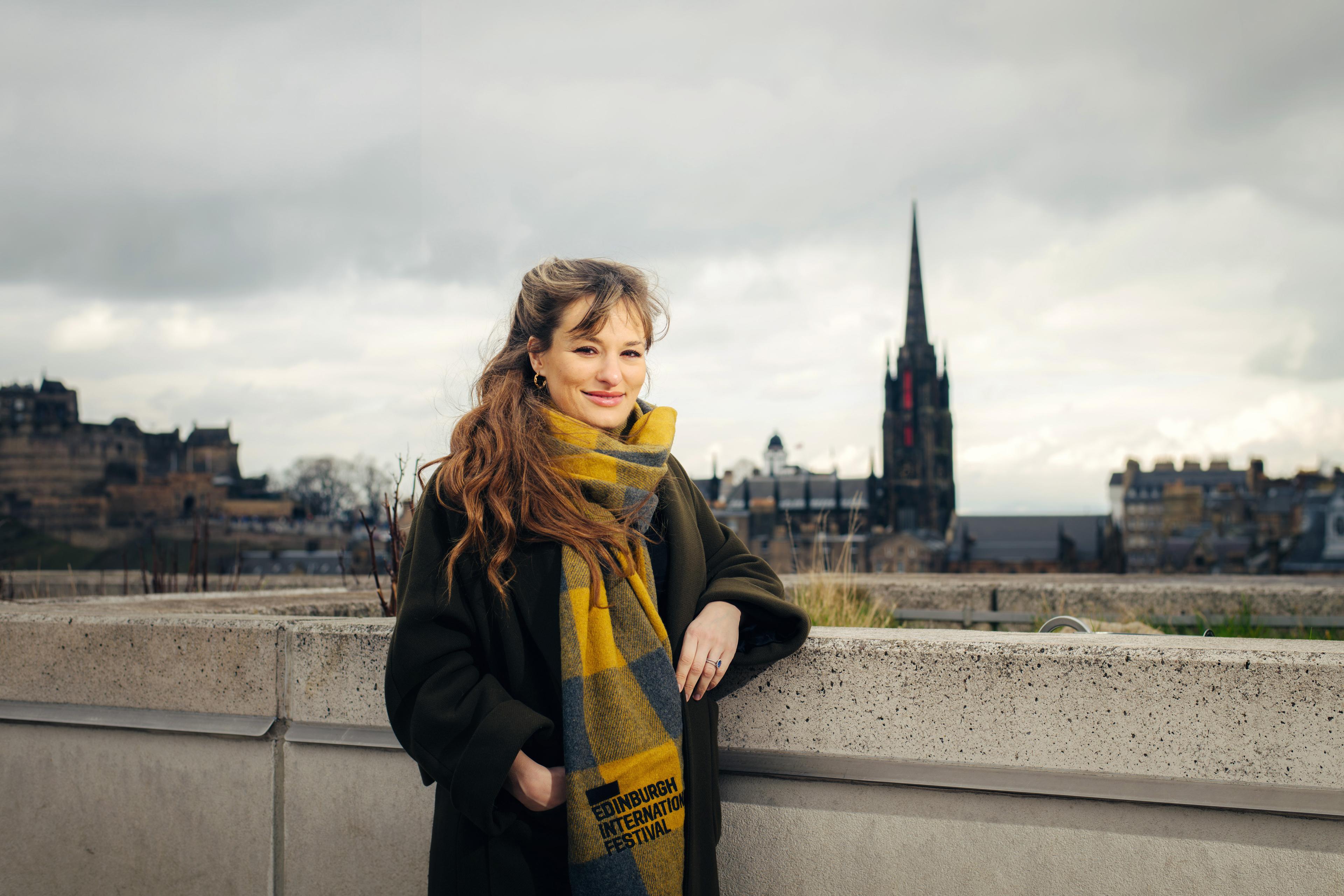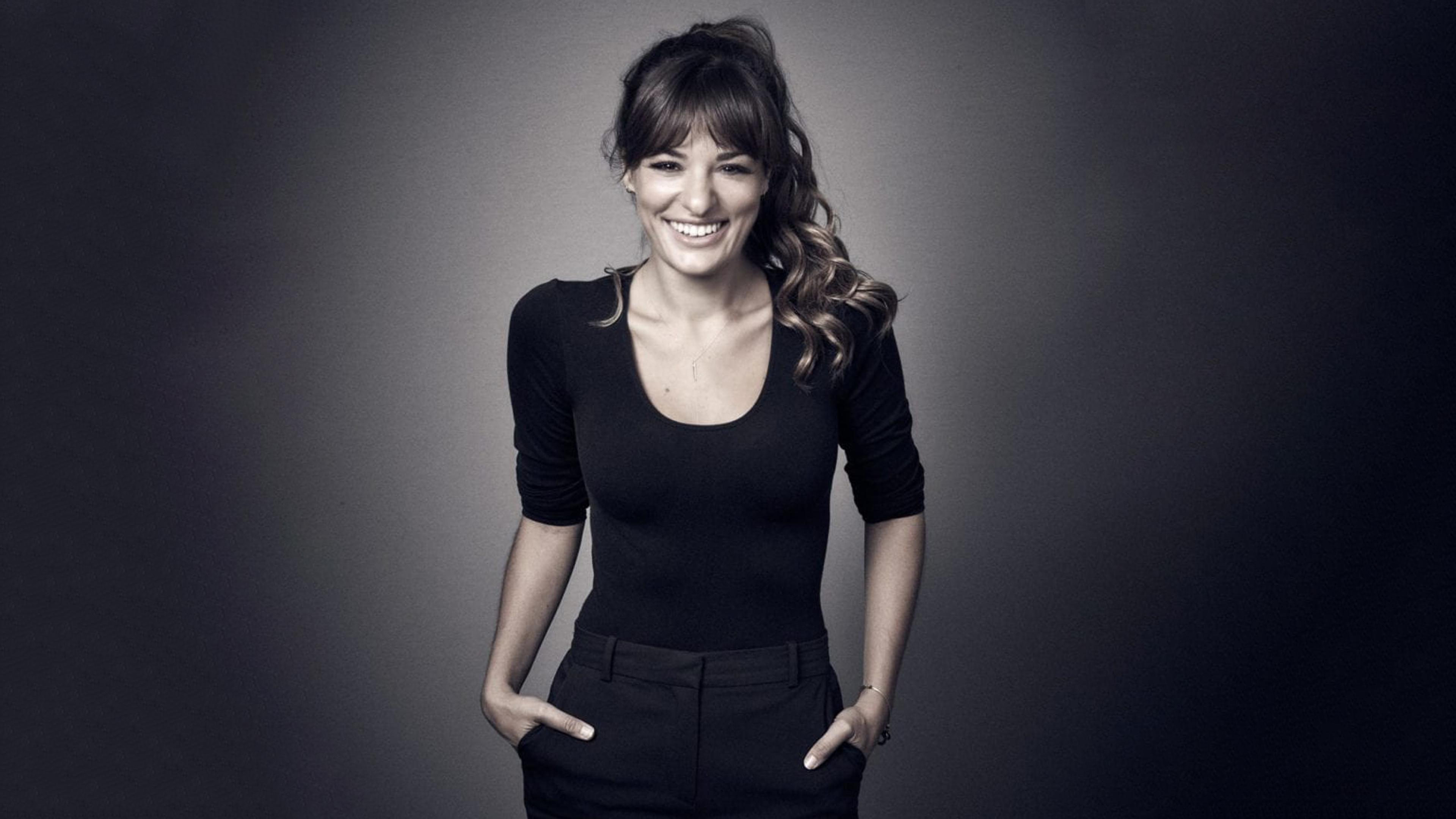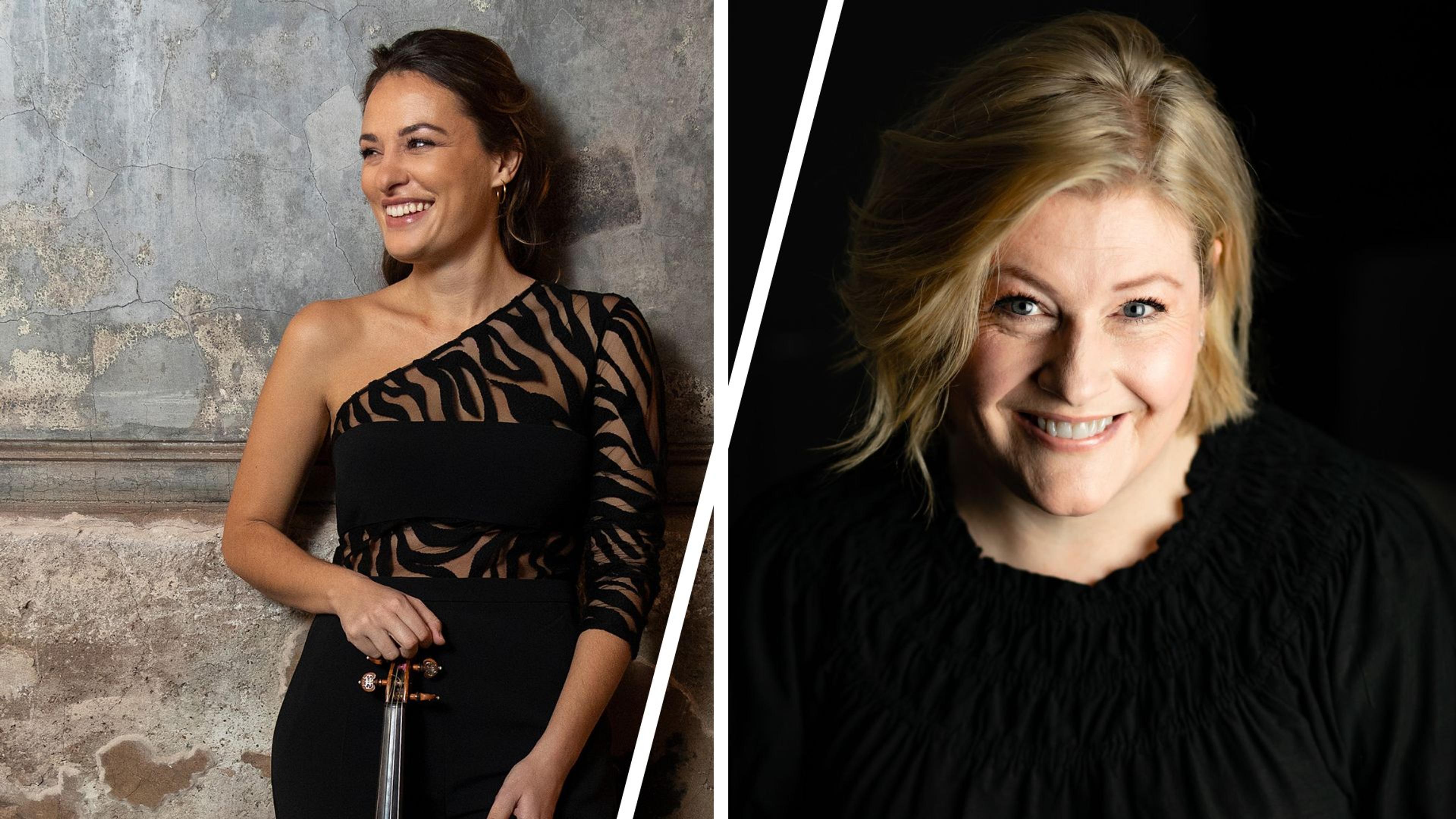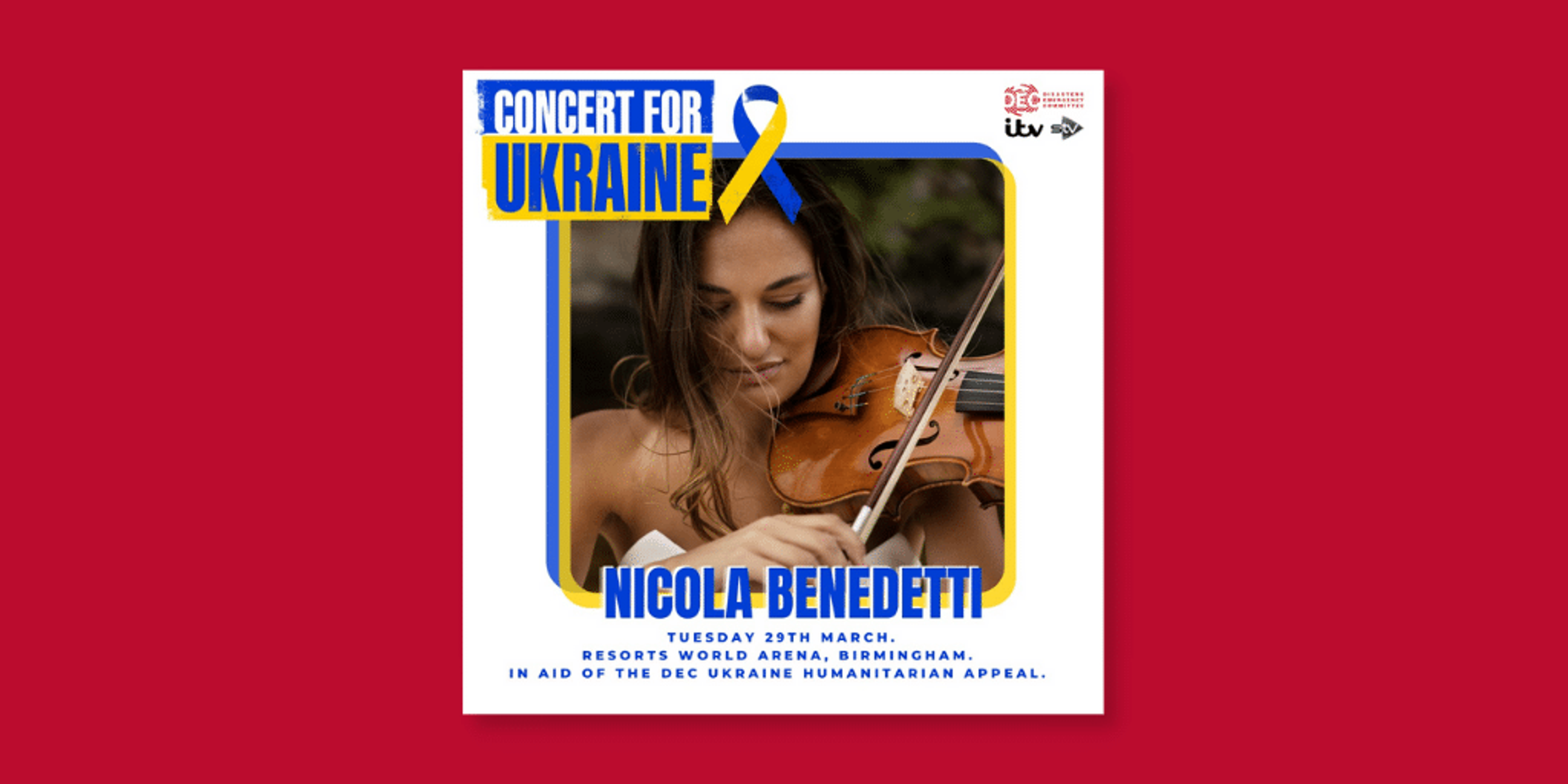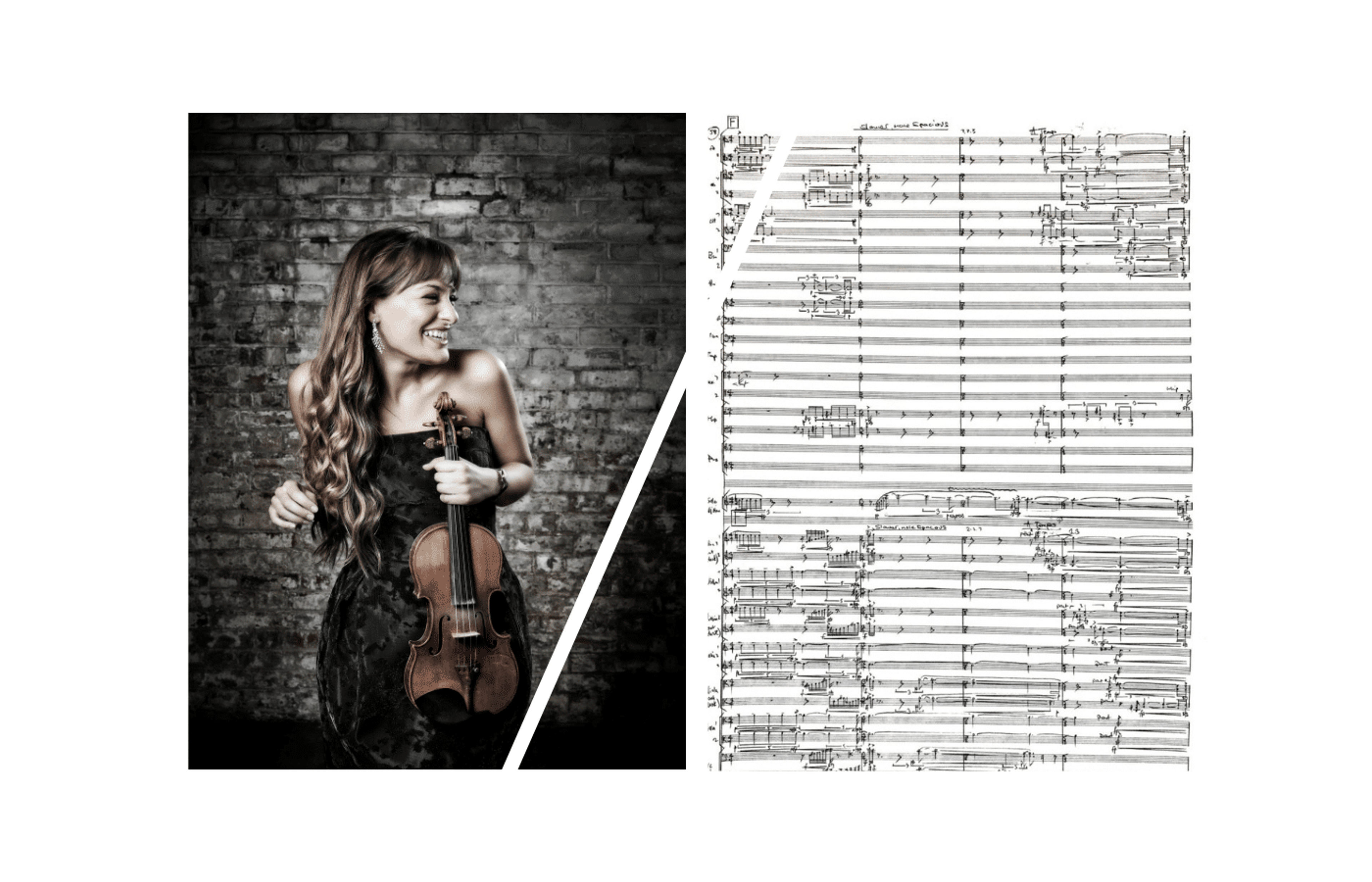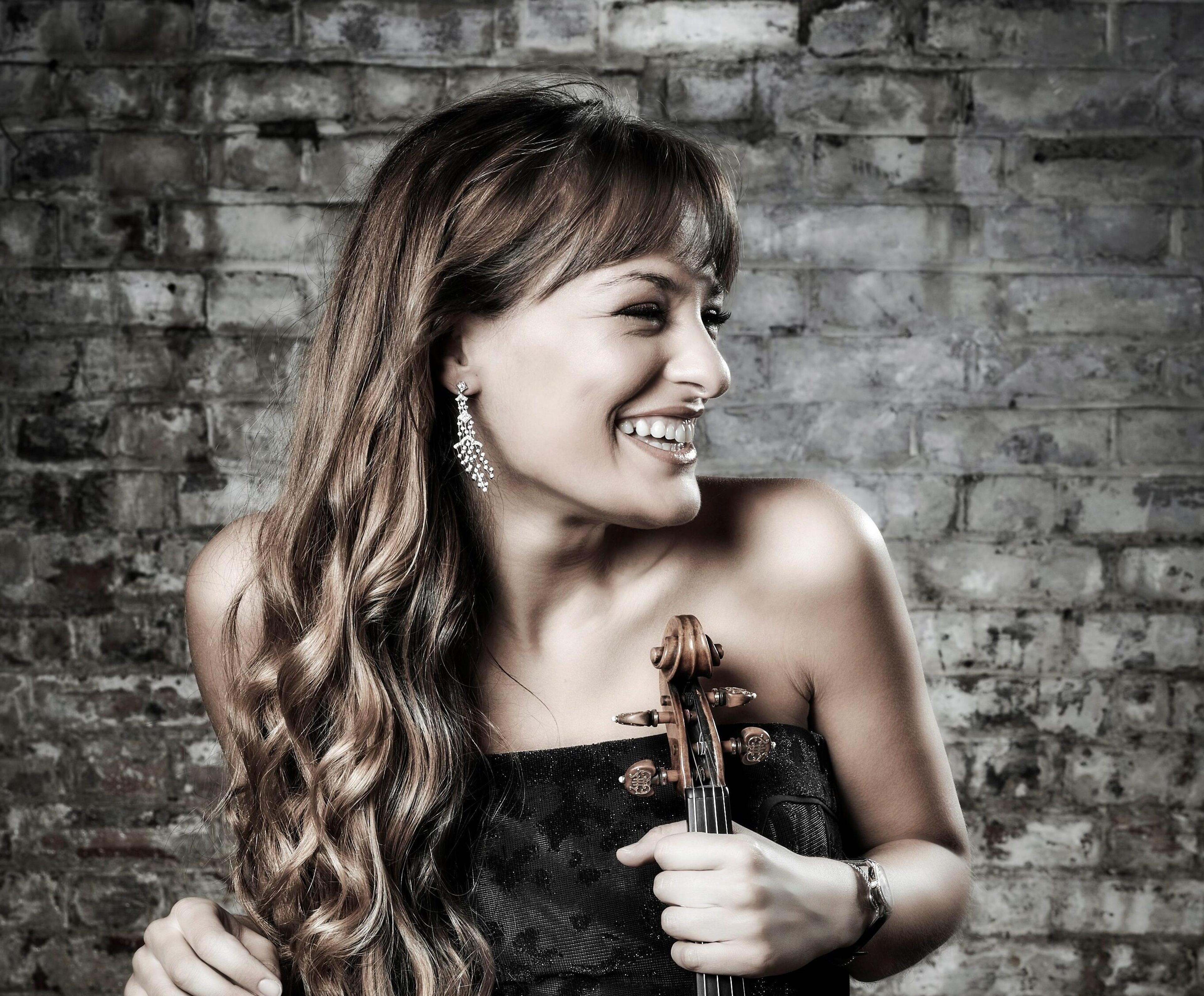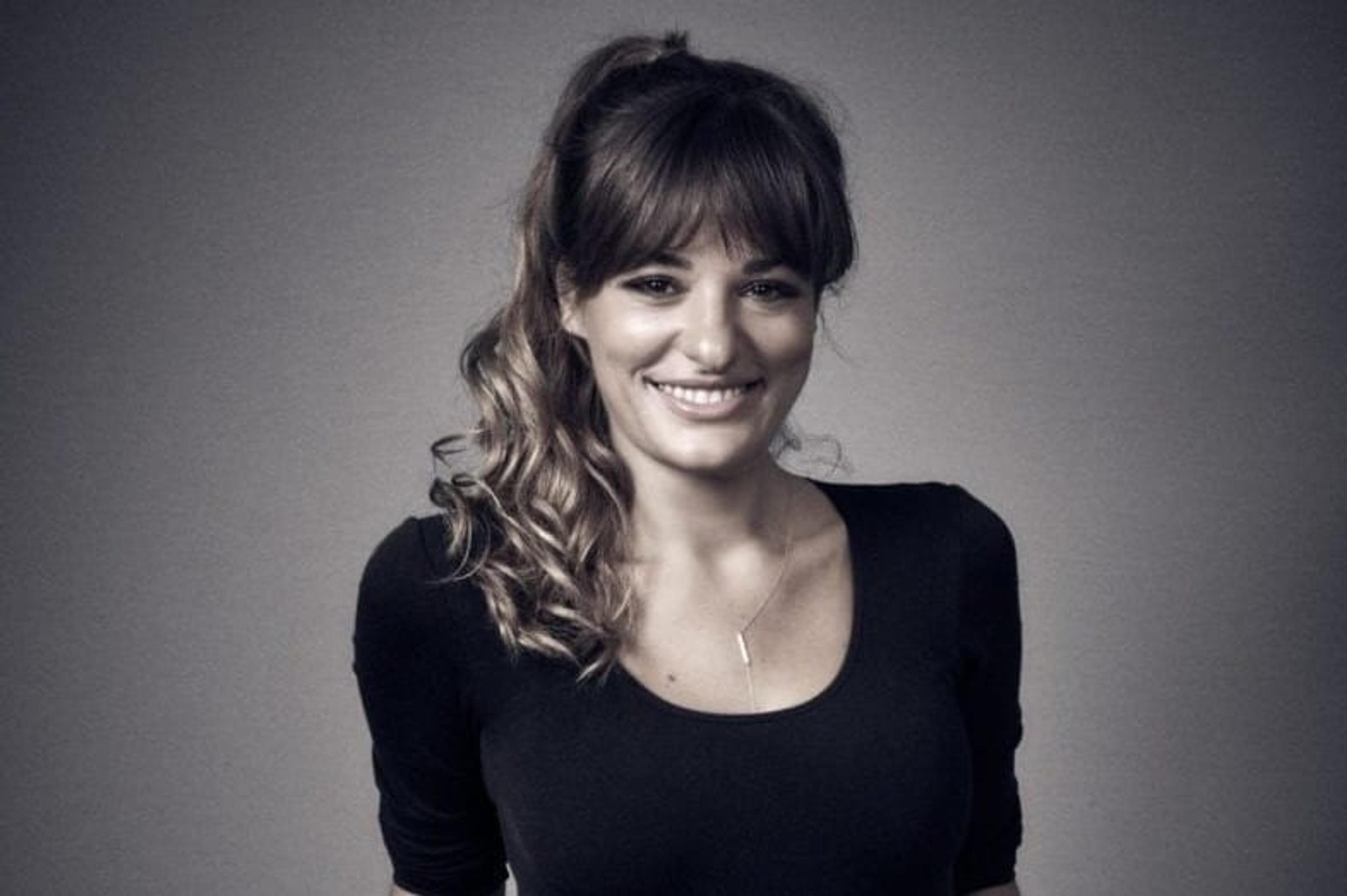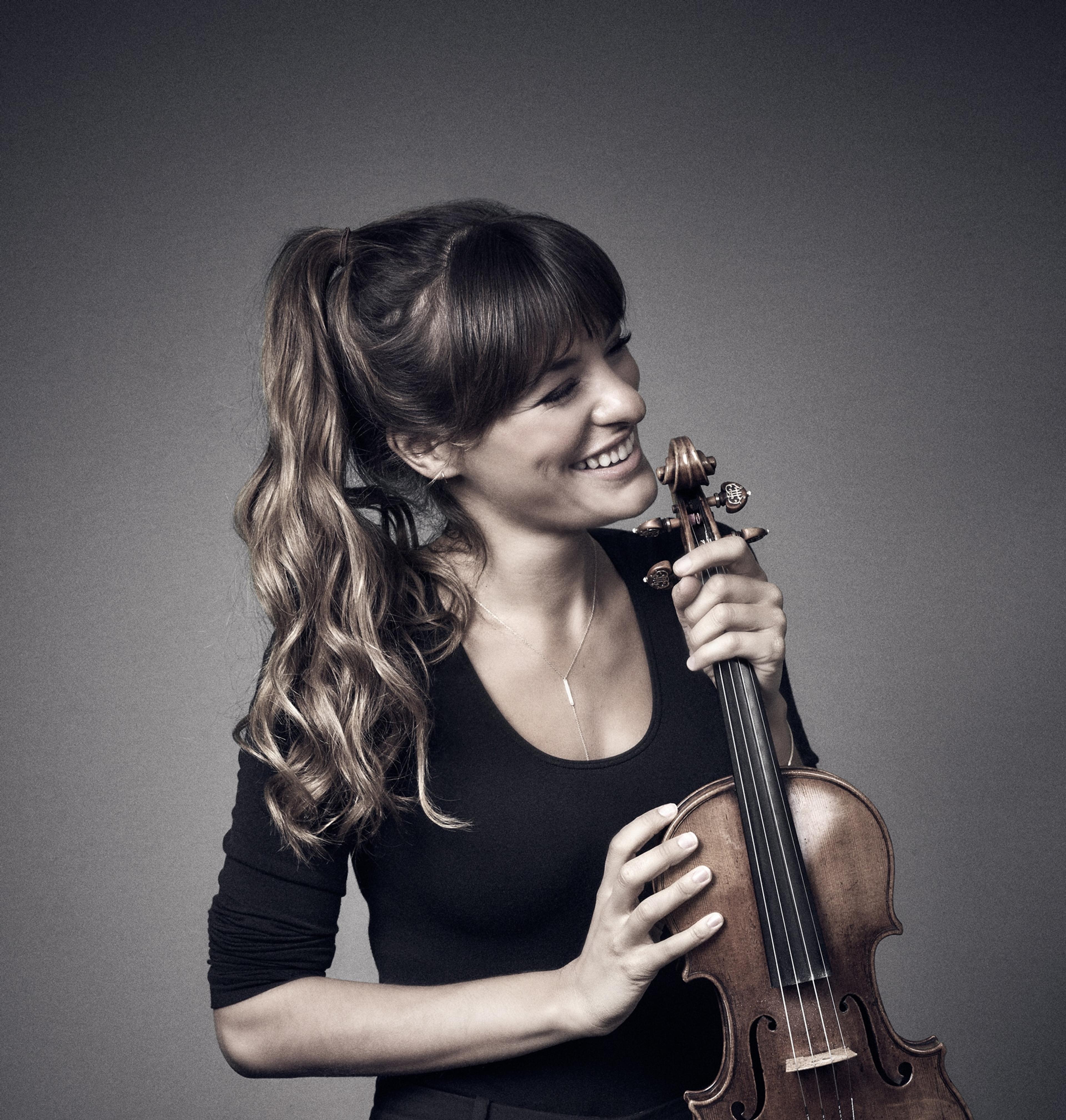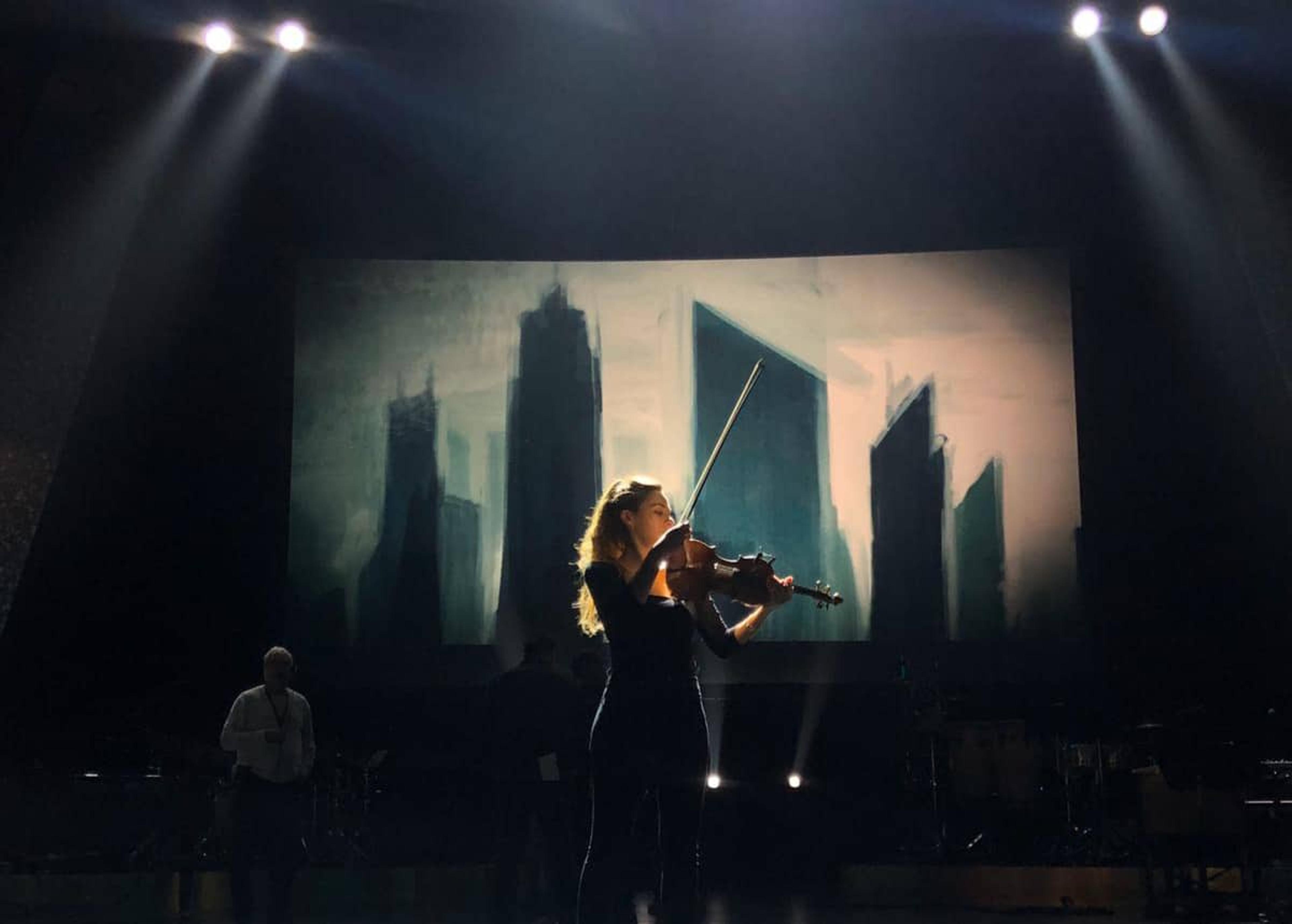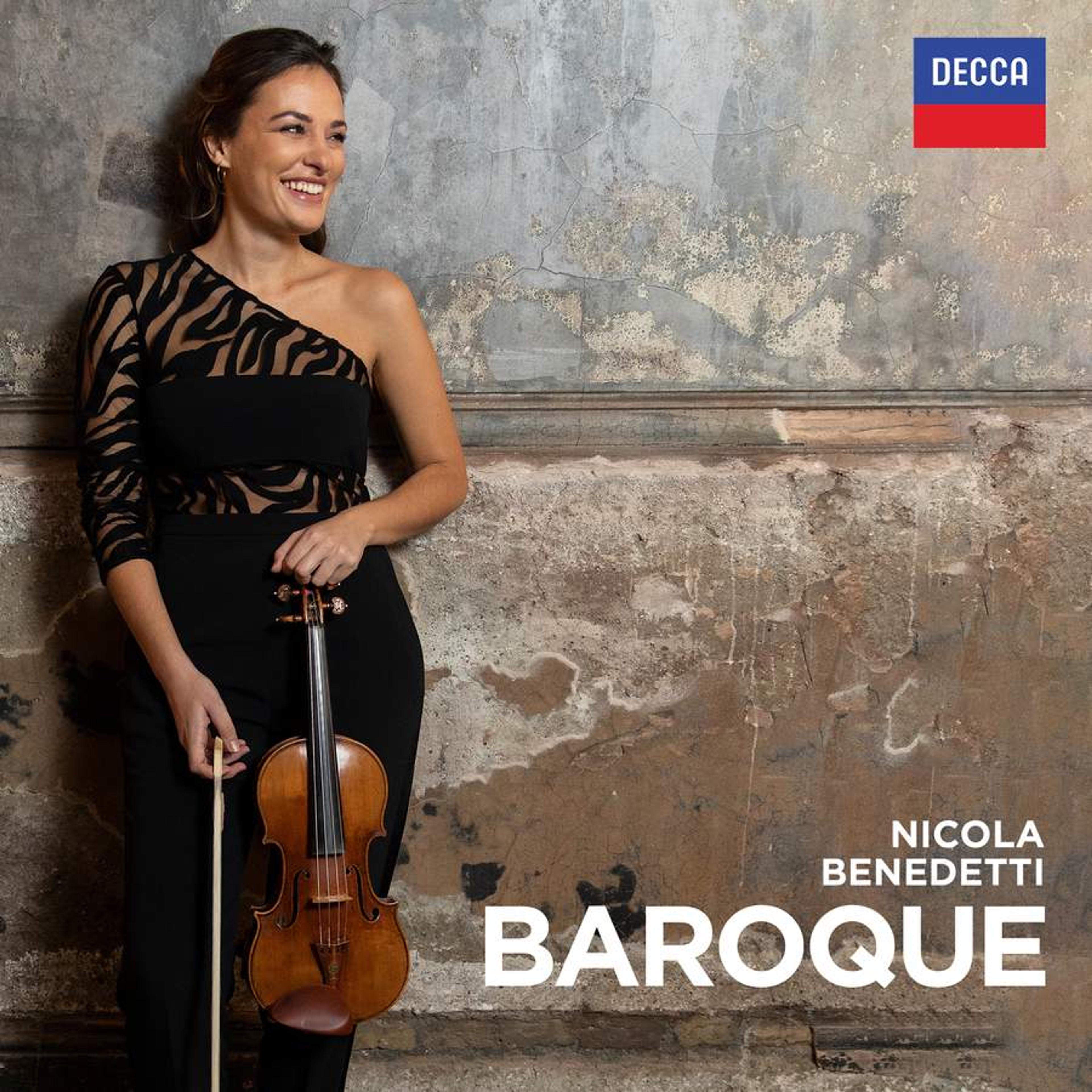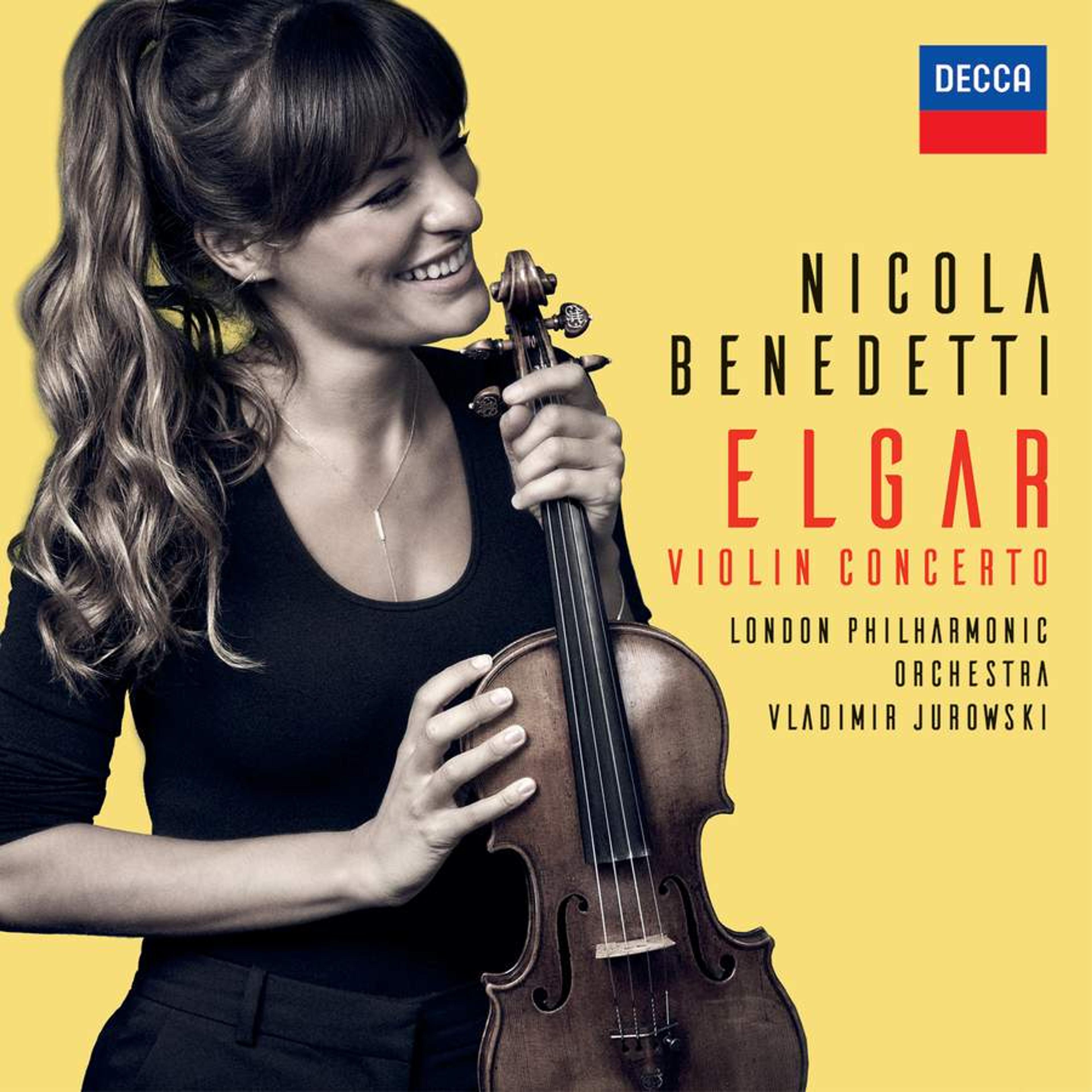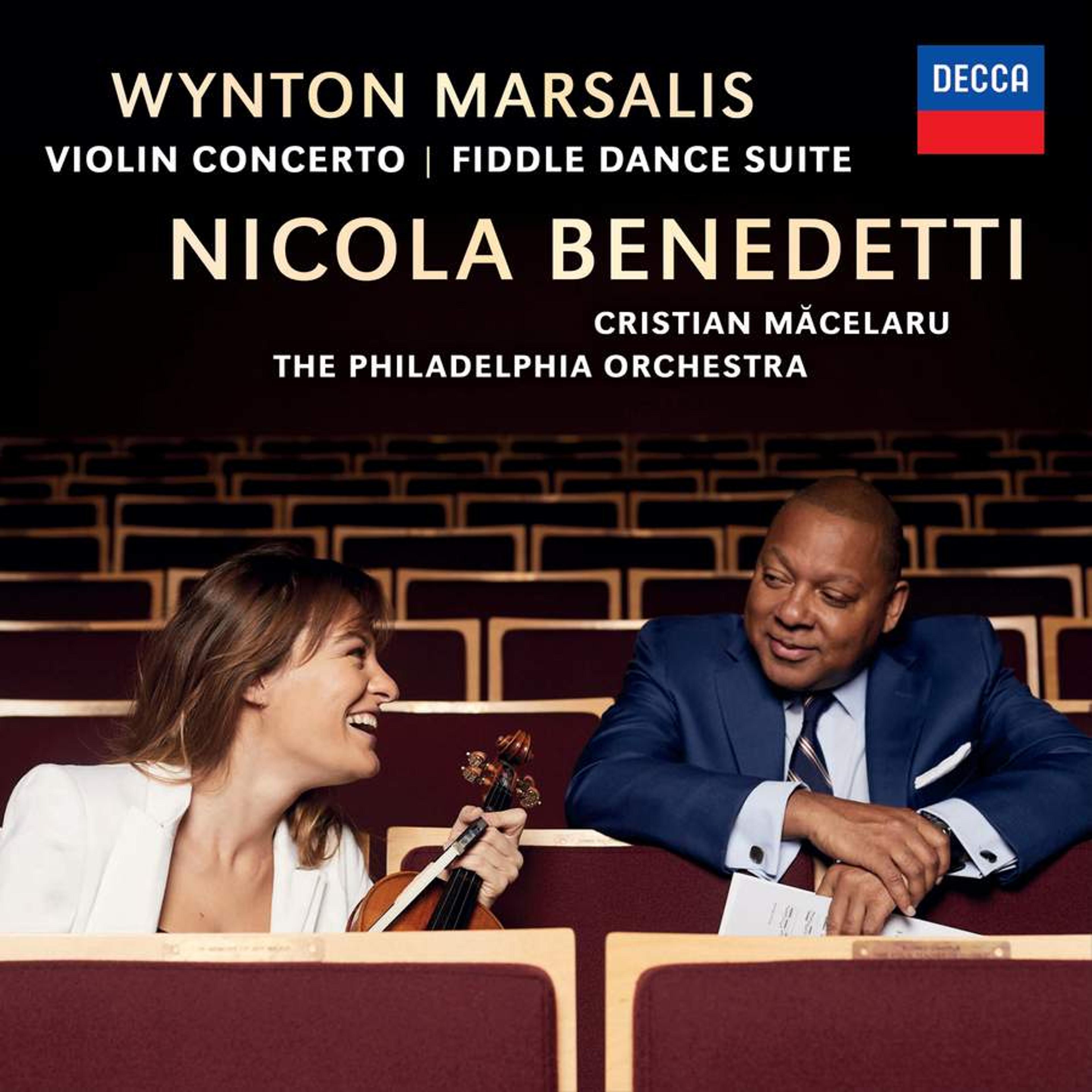NicolaBenedetti
- Violin


About Nicola
Nicola Benedetti is one of the most sought-after violinists of her generation. Her ability to captivate audiences and her wide appeal as an advocate for classical music has made her one of the most influential artists of today.
Nicola opens her 2025-26 season with a unique and personal solo tour of pre-eminent stages across the UK and Ireland including the Usher Hall, Edinburgh, Royal Concert Hall, Glasgow, Bridgewater Hall, Manchester, National Concert Hall Dublin, and the Royal Albert Hall. Coinciding with the release of her new album Violin Café, this marks Nicola’s first solo tour in over a decade, combining popular virtuosic and seductive romantic works, arranged for violin, guitar, accordion and cello.
Elsewhere in the season Nicola returns to the New York and Czech Philharmonic Orchestras with the Marsalis Violin Concerto, to the Rundfunk-Sinfonieorchester Berlin, Royal Scottish National, Philharmonia and London Philharmonic Orchestras with the Elgar Violin Concerto, and to the Scottish Chamber Orchestra with Mendelssohn’s Violin Concerto in E minor.
Nicola Benedetti is a GRAMMY Award winner (Best Classical Instrumental Solo, 2020), two-time winner of Best Female Artist at the Classical BRIT Awards, and in 2021 was recognised as BBC Music Magazine’s ‘Personality of the Year’ for her online support of young musicians during the pandemic. A long-time leader in music education, she established the Benedetti Foundation in 2019, delivering transformative experiences through mass music events. Nicola was appointed a CBE in 2019, awarded the Queen’s Medal for Music (2017), and an MBE in 2013.
In October 2022, Nicola became the Festival Director of the Edinburgh International Festival. In taking the role she became both the first Scottish and the first female Festival Director since the Festival began in 1947.
Contact
For availability and general enquiries:

Rachel Bertaut
Representation
Season Highlights
Video
- Playing
Nicola Benedetti and The Foundation Orchestra Play Mascagni
Credit: Decca Music Group
Nicola Benedetti Performs the Solo Cadenza from Wynton Marsalis’ Violin Concerto
Credit: YourClassical MPR
Nicola Benedetti Performs Shostakovich Violin Concerto No 1
Credit: Gothenburg Symphony Orchestra
Nicola Benedetti Plays Vivaldi
Credit: Strings Magazine
Nicola Benedetti and Wynton Marsalis discuss Violin Concerto in D
Credit: Ravinia Festival
Projects
An Evening with Nicola Benedetti
Nicola Benedetti has curated a unique programme, close to her heart, as she embarks on her first solo tour of the UK and Ireland in over 10 years.
Learn about this project
Projects
An Evening with Nicola Benedetti
Nicola Benedetti has curated a unique programme, close to her heart, as she embarks on her first solo tour of the UK and Ireland in over 10 years.
Learn about this project
News
Press
Brahms Violin Concerto
PhilharmoniaOct 2023There’s dark soul as well as showbiz fizz lurking in Brahms’s concerto, and Benedetti mined both of those strains, vibrantly accompanied by the orchestra under Cristian Macelaru. The long first movement was full of gutsy attack, and sometimes startling changes of colour and texture, but there was a melancholy streak under the surface, in the shiveringly dark double-stopped chords and Benedetti’s classy, sighing portamenti. The adagio was songlike, impulsive, and she chomped hungrily into the gypsy-inspired finale.
Szymanowski Violin Concerto No. 2
HalléJan 2023That cadenza itself, in Benedetti’s hands, was more than just virtuoso fireworks. She found beauty in it and brought her imagination to the technically demanding show-off passages. And in the remainder of the piece, which is marked by renewed alternation of character between the solo part (albeit now with a more lively, “folk” feel to it at times) and those of the orchestra’s sound, she sold every note to her listeners.
- The Arts Desk
- 13 January 2023
MacMillan Violin Concerto No.2
Scottish Chamber OrchestraSep 2022★★★★★ Often exquisitely tender, the violin line was brought to life by the woman for whom it was written. Nicola Benedetti, the concerto’s dedicatee, gave the solo part a consoling richness, shining out of the loneliness and, towards the end, duetting with several orchestral soloists like a developing conversation. She was as expressive in the music’s glimmering pianissimos as in its episodes of wrenching passion. Orchestra, soloist, conductor and composer seemed united in music of total conviction and core-shaking power. This performance gave the audience that rare feeling of being present at the birth of a masterpiece.
- The Times
- 30 September 2022
Prokofiev Violin Concerto No.2 in G minor
London Symphony OrchestraOct 2021To the many melodious passages she brought her signature sweetness of tone. She has all the requisite virtuosity as well, of course, when it’s called for, but she throws it off lightly: her tone was never abrasive, even in the spiky finale.
Mendelssohn Violin Concerto
Scottish Chamber OrchestraMar 2020But inevitably, Benedetti was the star of the show, and she gave a vividly characterised, deeply involved performance of Mendelssohn’s Violin Concerto, each movement carefully differentiated: a turbulent, troubled opener, brisk and poised slow movement, and appropriately crisp, strongly defined finale. Even without a conductor, it was a remarkably supple account, with tasteful rhythmic inflections here and there adding to its abundant charm.
- The Scotsman
- 13 March 2020
Tchaikovsky Violin Concerto
National Youth Orchestra, BBC PromsJul 2019Soloist Nicola Benedetti had been working with the orchestra during their week-long course and the rapport showed. For herself, Benedetti shaped a secure and expansive performance, giving a real kick to the dance sections of the finale. Her encore, from the Fiddle Dance Suite written for her by Wynton Marsalis, kept on swinging as she walked slowly offstage.
- The Guardian
- 28 July 2019
Spring rebirth came with Benedetti’s bewitching engagement in the Tchaikovsky Violin Concerto , matched for forward-moving mobility by Wigglesworth (were those full-orchestral Polonaises a bit too fast? Not in context). From the back of the hall, her upper-register sweetness sounded ravishing, and it wasn’t necessary to hear every note in the fast passage-work given the level of heady communication. Benedetti had already shown us what a Mensch she is as an ambassador for musical youth in last year’s BBC Young Musician Prom, and she did so again in a candid and typically generous speech before her encore, forestalling my own lines here by pointing out as a mark of teamwork the way the wind soloists handed lines to one another in the first movement’s second group of themes.
- The Arts Desk
- 28 July 2019
Elgar Violin Concerto
BBC Symphony OrchestraApr 2019And in this gripping performance (the first time she has played the concerto in London), what a thrilling rush of passions she brought to it. With some interpretations you feel as if emotion is being recollected in a haze of nostalgia, regret, dejection or whatever. Not so here.
- The Times
- 29 April 2019

